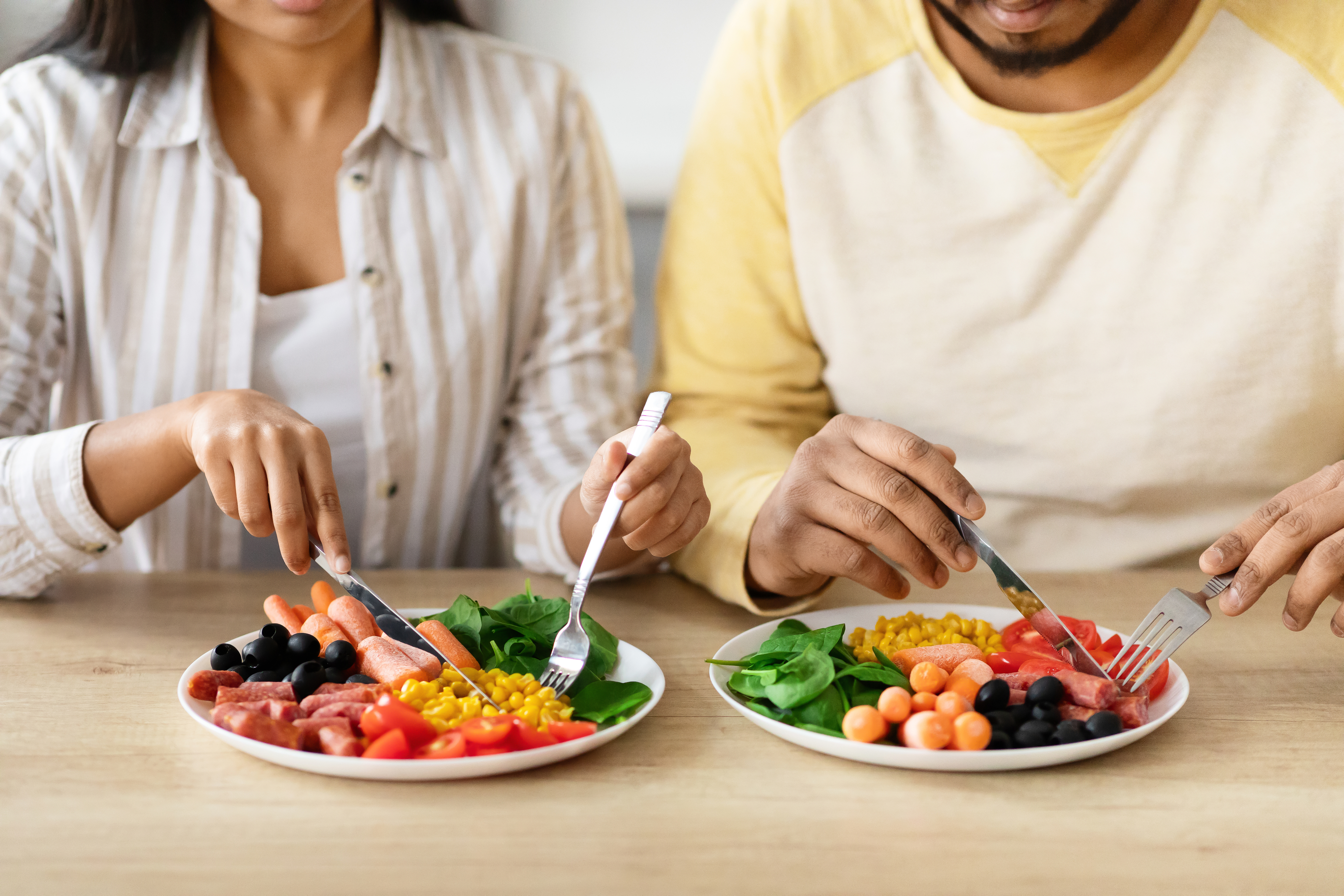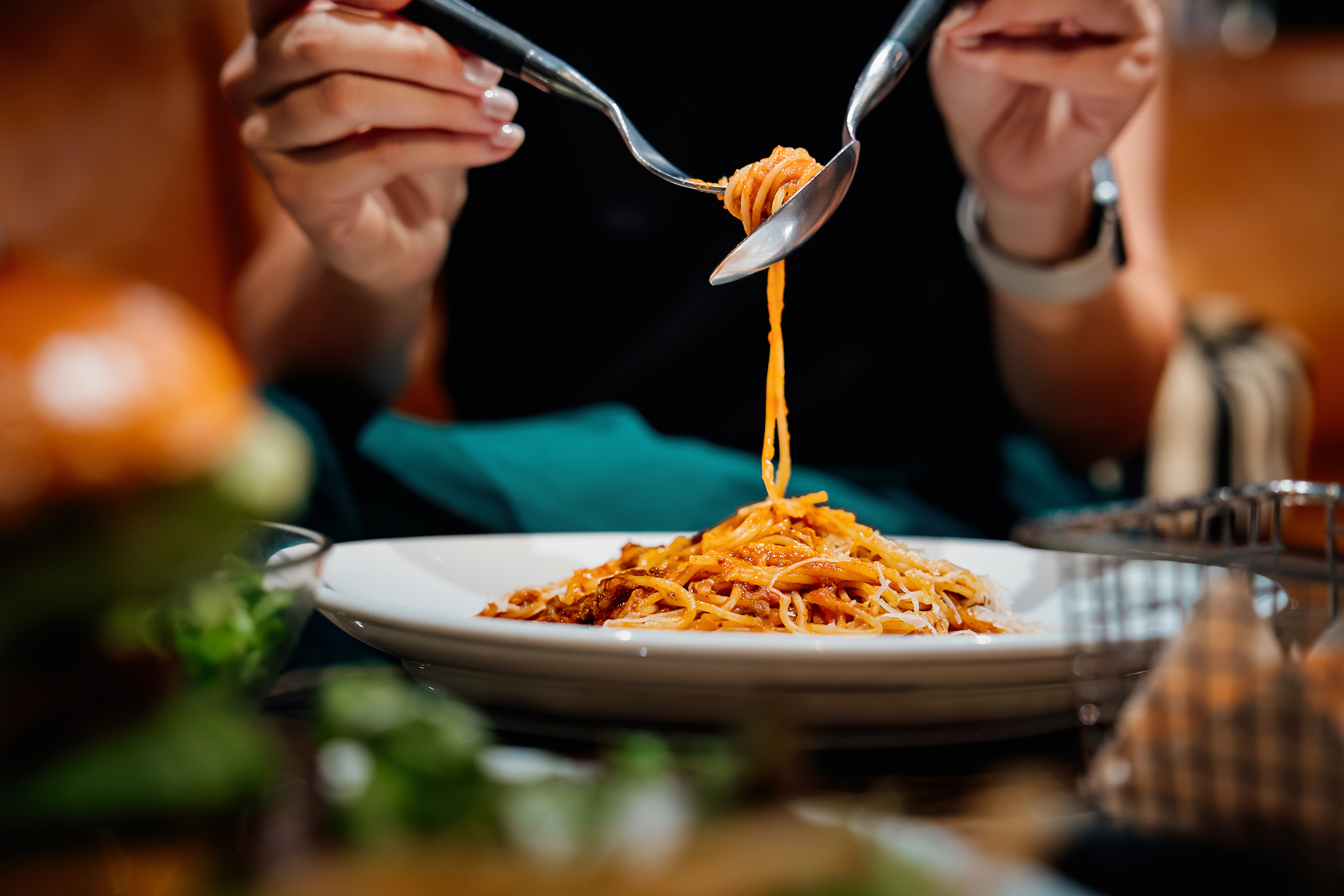" Even if they ’re well - meaning , these remarks can make some the great unwashed feel judged , shamed and self - conscious . " — Dr. Evelyn Attia
“ You just always have to be healthy . ”
A former co - worker used to snarkily say this to me at every group body of work meal whenever I ordered a salad or something else vegetarian , which I was at the time . She always say it in a way that suggested she perceived what was on my scale as an insult to whatever she eat . It was n’t , of class .

The habit of remark on what others eat is common , saidHeather Baker , a licensed clinical social worker and founder of Prosperity Eating Disorders and Wellness Center in Herndon , Virginia . “ It ’s a way to devise a connection with someone else , ” Baker pronounce . “ Food is this world-wide commonality that we share , so it ’s only raw that we have this desire to comment on it . ”
But doing so can be harmful , she added .
“ Comments about food and eating can be difficult for someone with an rust upset or someone who is queasy about eat on with others,”Dr . Evelyn Attia , a psychiatrist and manager of the Center for Eating Disorders at New York - Presbyterian Westchester Behavioral Health , secern HuffPost .

Attia say these remarks — even if they ’re well - import — can make some mass feel estimate , guilty and ego - witting .
Why You Shouldn’t Comment On What Others Eat
The simple answer : You never know what someone else is going through and why they ’re corrode what they ’re eating , Brittney Lauro , lead healer at eat disorder treatment platform Equip , tell HuffPost .
Someone could be deal with or regain from an eating disorder , for example , and Lauro said remarking on how hefty they ’re eating or that they ’re “ being good ” by eating vegetables could follow across as praise for their shape .
the great unwashed might also have wellness condition where dietary changes , such as giving up gluten or last works - base , are necessary , explainedMelissa Preston , a commissioned professional counselor , registered dietitian and carbon monoxide - founder at Omni Counseling and Nutrition in Denver , Colorado .

The bottom line is , Baker order , “ There ’s no way of roll in the hay how someone will interpret a comment about food , even if there are unspoilt intentions behind it . ”
6 Things You Should Never Say To People You’re Dining With
“I would never eat ___.”
betoken out how you avoid eating whatever is on someone ’s shell , for whatever reason , could make them find feign , Preston said . It also reinforces diet culture and can seem like you ’re liken your body to theirs , Baker added , especially if you say something like , “ I could never eat that much lettuce , or I ’d gain exercising weight . ”
“You’re not going to eat all of that, are you?”
Statements like this can make someone feel judge about their eat alternative , Attia said . Also , ward off notice on your own plate sizing or fullness—“I ate too much , ” for instance — which might make someone feel ego - witting about what they eat , Baker say .
“Oh, you’re being good (or bad) today.”
Avoid labeling foods as “ well ” or “ bad ” or “ healthy ” or “ unhealthful , ” Lauro said . For example , if you say , “ Is n’t that insalubrious to eat for breakfast , ” it could further a mother wit of ignominy and be spark off for some masses . She emphasized the “ all food primed ” concept , meaning there ’s room for all foods in someone ’s diet . “ Nothing ’s off limit unless , of course , you have a food allergy , ” she said .
“Are you dieting?”
“ Never comment on how food is fit to affect someone ’s body , ” such as gaining or losing weight , Preston said . On the impudent side , keep off talking negatively about your own appearance in coitus to what you wipe out in the presence of others , Lauro supply .
“ I subsist by a idiom that I often hear in my field : ‘ My appearance is the least interesting thing about me , ’ ” Lauro said . “ There ’s so many more issue that we can compensate . ”
“You look healthy.”
This might sound like a compliment , but Baker said it could be misinterpreted by someone with an eat disorder as implying that they gained weight , which can “ start a spiral of minus self - talk of the town . ”
She say , “ Instead , do gossip on the aspects of the person ’s personality or ego - punk that you are discover more and are grateful to reconnect with . ”
“That looks good.”
This is a foxy one . In some case , it could be harmless . But Preston say some hoi polloi , specially those in eating disorder convalescence , do n’t want any attention take out to their meal .
“ let someone get it on that their food looks delectable can be experienced as a message that suggest they are indulging in their choice of food or not measure wellness in their food choices , ” Attia said .
How To Respond To What Others Say About WhatYouEat
Often , changing the topic is the good strategy . When someone enounce , “ That look really tidy , ” say , “ Oh , it taste really good , ” Preston evoke . That takes the attention off the wellness panorama .
airt can assist , too , Lauro said . When someone impart up something you do n’t want to talk over , ask them about something completely unrelated , such asBeyoncé ’s new country album or another current upshot .
If you feel comfortable being direct , Baker said to simply say , “ Can we not talk about nutrient or our body ? ”

Lauro allege to always be kind to yourself , dress boundaries and get laid your terminal point regarding what you ’re comfortable ( and not comfortable ) discussing .
If you ’re struggle with an eating disorderliness , call or text 988 or chat988lifeline.orgfor support . This article originally seem onHuffPost .